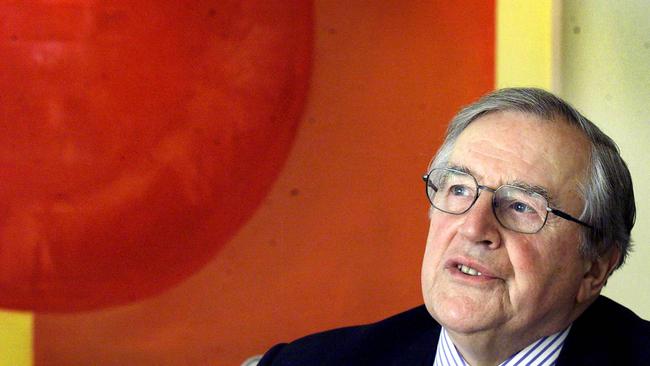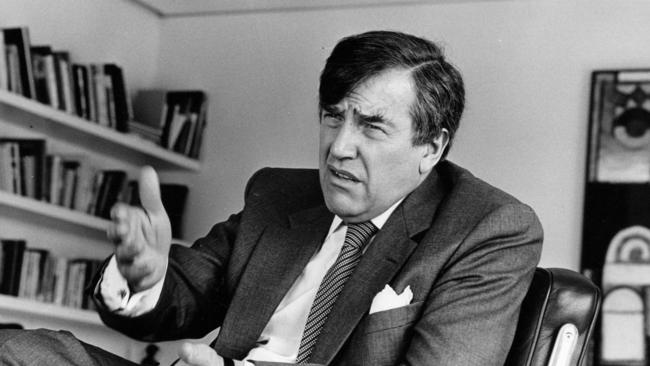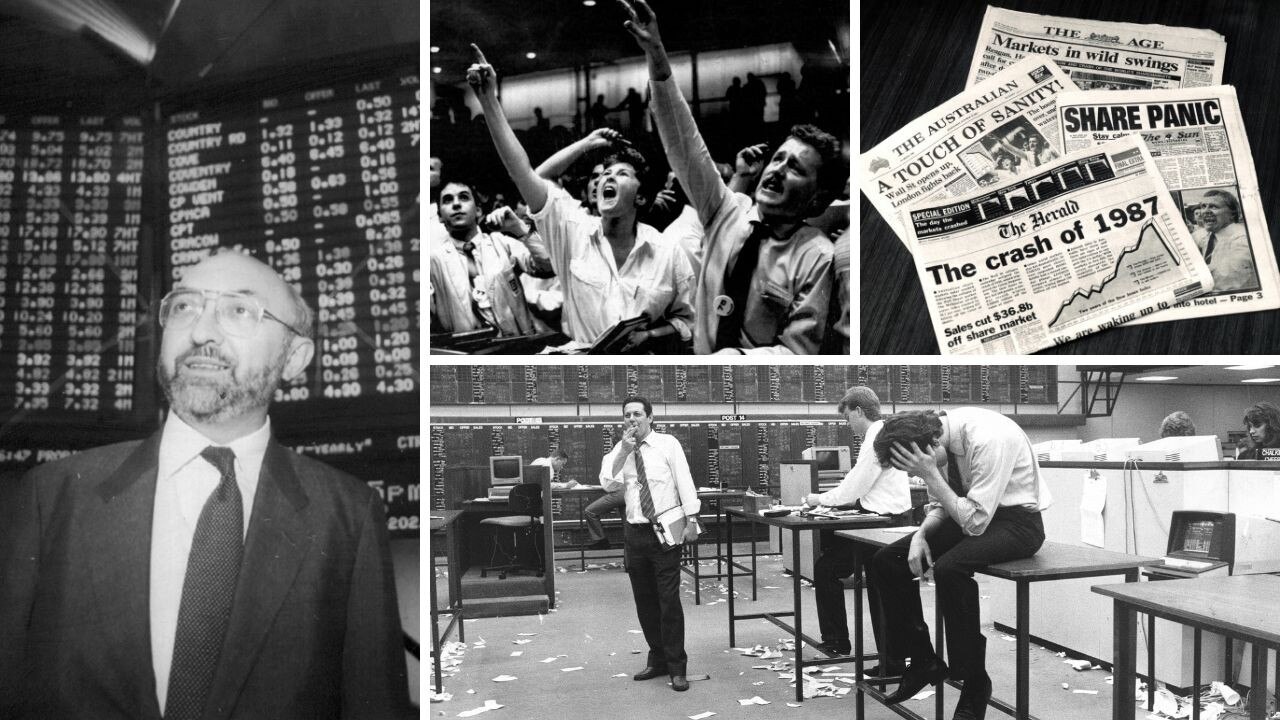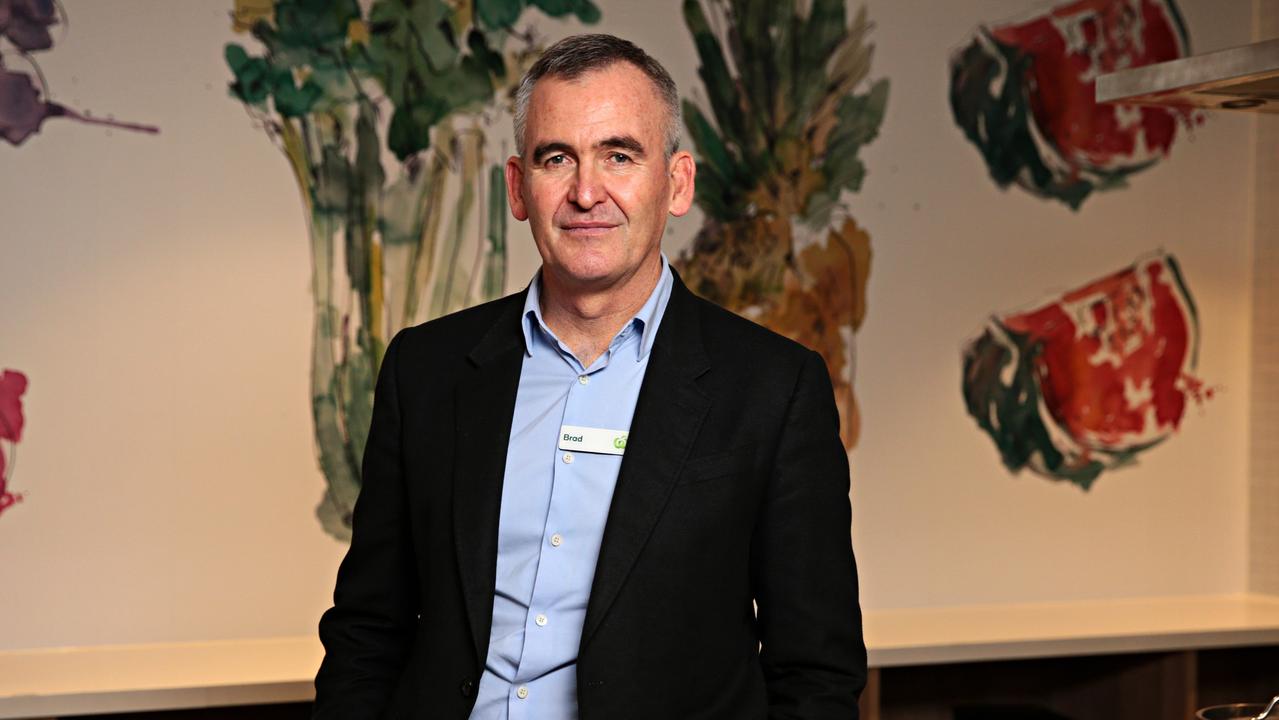Sir Roderick Carnegie was Australia’s first really modern corporate chief executive
Sir Roderick Carnegie came to the top job at mining group CRA exactly as Australia began to change so dramatically in the 1970s and he both rode and helped mould that change.

Terry McCrann
Don't miss out on the headlines from Terry McCrann. Followed categories will be added to My News.
Sir Roderick – Rod – “Rod the God” – Carnegie should be seen in history as Australia’s first really modern corporate chief executive.
He came to the top job at a very major company, exactly as Australia itself began to change so dramatically in the 1970s. He both rode and helped mould that change.
He was also an all-Australian CEO.
He was absolutely determined that Australia’s major businesses – and so not just our economy, but indeed our very national destiny – should be controlled, by Australians, in Melbourne and Sydney.
Not, as they had been, for around 180 or so years since 1788 out of London; and then, increasingly, since the 1950s, also New York.
These two themes merged when Sir Rod, who died on Sunday, aged 91, was CEO and then also chairman, of one of the major mining group CRA, from 1974 to 1986.
They were decidedly febrile times in the life, and development, of the nation. And of course, of business.
The 1980s were the ‘decade of Keating’ – the sweeping financial deregulation of Treasurer Paul Keating.
They were also, of course, the not exactly unrelated ‘decade of greed’ – of Alan Bond, Robert Holmes a Court, and bankers lending billions.

Carnegie came to the top job at CRA – majority owned by a British parent, RTZ now Rio Tinto, and absolutely controlled by that RTZ, out of London – from a very unusual source: management consulting group McKinsey.
This made him unlike all his – almost exclusively, by the bye, male – CEO peers, who in those days generally had diligently worked themselves up the management hierarchy in a single company over decades.
He was also a very different – a very CORPORATE – animal, compared to the great leaders of other RTZ offshoots in Australia, or indeed the leaders and builders of the mining and resources industries in Australia more widely.
People like Maurice Mawby and Russ Madigan, along with Sir Arvi Parbo, doyens of the development of Australia’s post-war resources industries. They grew businesses, hands-on, at the literal coal faces, out in the bush.
An industry, on which of course, but largely unrecognised and certainly unthanked, rests our prosperity, Treasurer’s Chalmers’s budget surpluses, such as they are – and so your tax cuts, such as they are.
And indeed, our very national existence.
Carnegie’s obsession as CEO was to ‘naturalise’ CRA – to separate it from its British parent – in an Australia under a PM, Hawke, and his government doing much the same thing.
In Carnegie’s case, in the enlightened self-interest of BOTH CRA and its parent RTZ.
Carnegie persuaded London to largely, but not totally, lock CRA board control into Australia.
In return, he won from the Hawke government a formal ‘Naturalised’ status, that gave the nominally ‘foreign’ CRA the rights of an Australian-controlled company under foreign investment rules.
It also gave him sweeping power: hence, “Rod the God”.
It would ultimately prove short-lived, with the Howard-Costello government allowing RTZ to completely takeover CRA, and return all decision-making to London.
Not so much back-to-the future, as back to the (pre-WW Two) past.


